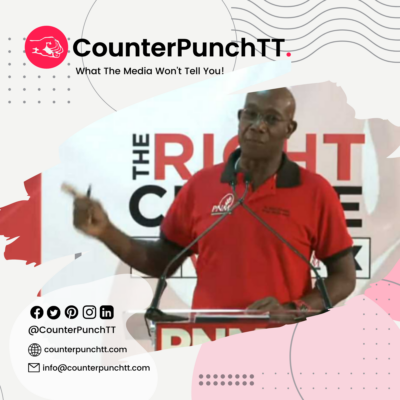PROFESSOR Selwyn Cudjoe’s major contribution to the discussion on crime is not the package of proposals he delivered.
Frankly, we have heard the suggestions before, although they remain critical and urgent in the face of the unceasing crime epidemic.
Cudjoe’s input is that he courageously chose to speak out on the pressing issue of the day.
That makes him singular in Trinidad and Tobago’s academic community, where most practitioners, including pencil-pushing criminologists, are shying from challenging the authorities.
More than at any other time in T&T’s modern history, the men and women of academia are ducking from commenting on matters impacting voiceless citizens.
Cudjoe’s frank presentation at last week’s anti-crime meeting amounted to a fleeting revival of a time, a few decades ago, when professors and lecturers engaged society on pressing national issues.
The 1970 Black Power revolution emerged from the St. Augustine campus of the University of the West Indies, led by fearless Geddes Granger (later Makandal Daaga).
Scores of conscientious undergrads rallied around the cause, joined by a few academics.
Their campaign led to social and economic change.
During that period, the West Indies Group of University Teachers was alert to issues of prejudice and inequity.
Lecturers spoke at trade union assemblies.
In successive years, several scholastic figures emerged from the safe sanctuary of the university environment to take on governance matters.
This was particularly noteworthy during the administration of Dr. Eric Williams, who was viewed as a maximum leader, with streaks of vindictiveness.
Williams was vindictive, given to control, revenge and contempt, Professor Selwyn Ryan said.
Lloyd Best and others dared to criticise those along the corridors of power and proffer solutions to national crises.
Basdeo Panday attracted several academics – Winston Dookeran, Vishnu Ramlogan, Dr. Sahadeo Basdeo et al – to his rearguard political cause.
Others, like Dr. James Millette, were on the revolutionary fringe, while a select few, including Dr. Gordon Draper, linked with the PNM.
Several women were among those who argued working class and gender issues, clamouring for a more equitable share of the national pie.
Cudjoe is not attached to the local tertiary education sector, and that has possibly permitted him to unlock his academic potential and speak freely on crime and other crucial issues.
Before his lecture at the anti-crime discussion, he slammed Dr. Keith Rowley in a newspaper column, saying the Prime Minister “has become part of the problem rather than part of a solution.”
Rowley “is the personification of arrogance,” Cudjoe wrote, adding: “He does not seem to care about anyone except himself.”
His daring analysis and stand-out critique at the anti-crime forum are in stark contrast to the sheepishness of academics at a time of mounting problems.
The gap between rich and poor is widening, there are business monopolies, workers have gotten a four per cent wage deal to cover 10 years amid a 100 per cent hike in the cost of food.
There are issues pertaining to infrastructure, the environment, healthcare and housing.
And our learned figures are as quiet as the proverbial lamb, except for occasional technical analyses.
There are no rousing rallies, proactive dialogue, assertive commentaries.
The murmur is that some socially conscious academics are afraid of being victimised, including denied tenure.
But that reflects the need for watertight unity among academics amid a resurgence of the dogged championing of bread-and-butter issues.
In the midst of the current docility, Professor Cudjoe has emerged as an unlikely advocate for the afflicted.




